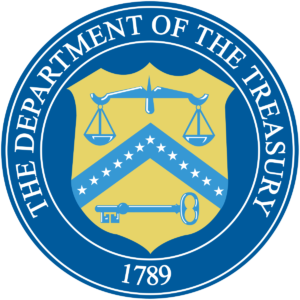 The U.S. Department of the Treasury and Internal Revenue Service (IRS) today released guidance on the Sustainable Aviation Fuel (SAF) Credit established by the Inflation Reduction Act (IRA).
The U.S. Department of the Treasury and Internal Revenue Service (IRS) today released guidance on the Sustainable Aviation Fuel (SAF) Credit established by the Inflation Reduction Act (IRA).
The Treasury Department’s guidance provides important clarity around eligibility for the SAF Credit. The credit incentivizes the production of SAF that achieves a lifecycle greenhouse gas emissions reduction of at least 50% as compared with petroleum-based jet fuel. Producers of SAF are eligible for a tax credit of $1.25 to $1.75 per gallon. SAF that decreases GHG emissions by 50% is eligible for the $1.25 credit per gallon amount, and SAF that decreases GHG emissions by more than 50% is eligible for an additional $0.01 per gallon for each percentage point the reduction exceeds 50%, up to $0.50 per gallon.
Under the guidance issued today, numerous fuels will qualify for the credit, including valid biomass-based diesel, advanced biofuels, cellulosic biofuel, or cellulosic diesel that have been approved by EPA under the Renewable Fuel Standard (RFS).
Fuels that achieve a 50% or greater reduction in lifecycle greenhouse gas emissions under the most recent Carbon Offsetting and Reduction Scheme for International Aviation (CORSIA) standard will continue to qualify under today’s guidance. In addition, EPA, DOT, USDA, and DOE are announcing their commitment to release an updated version of DOE’s GREET model by March 1, 2024. Pending further guidance from the Treasury Department, the updated GREET model will provide another methodology for SAF producers to determine the lifecycle GHG emissions rates of their production for the purposes of qualifying for the SAF Credit for SAF sold or used during calendar years 2023 and 2024.
Reacting to the announcement, Renewable Fuels Association President and CEO Geoff Cooper said, “While there are important carbon modeling updates and details that still need to be worked out, we are cautiously optimistic that today’s guidance could open the door to an enormous opportunity for America’s farmers, ethanol producers and airlines. The Biden administration is recognizing that the best way to meet ambitious SAF targets is to maximize marketplace flexibility, make use of existing low-carbon fuel assets, and stimulate innovation and competition across the entire supply chain.”
Cooper discusses the guidance in this interview:
RFA CEO Geoff Cooper interview (5:53)
American Coalition for Ethanol (ACE) CEO Brian Jennings also welcomed the announcement. “Today’s decision helps clear the runway for ethanol-to-jet. Treasury made the right call to enable the use of GREET to determine the carbon intensity of SAF because it is the global gold-standard for calculating GHGs from transportation fuels and GREET is the most up-to-date, accurate model reflecting the best-available science, including farm practices. Treasury’s decision will enable corn ethanol to emerge as a significant SAF feedstock in the years to come and fulfill President Biden’s pledge that farmers would be providing 95 percent of SAF in the next 20 years.”

